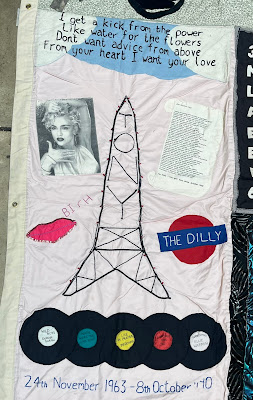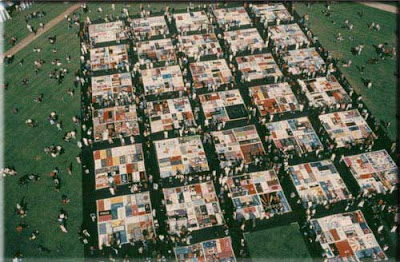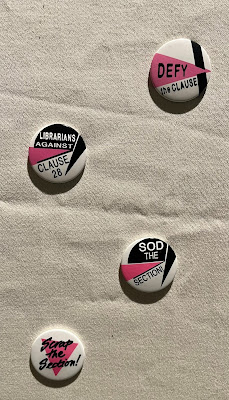As Japan industrialised in the late 19th and early 20th century large numbers of young women were employed in textile mills, often living in tightly regulated dormitories under the control of their employers. Like people in many places they sang songs of despair and defiance.
Here's some extracts from a few textile workers' ballads, from an article by E Patricia Tsurumi (Female Textile Workers and the Failure of Early Trade Unionism in Japan, History Workshop Journal, 18, Autumn 1984).
Song of the Living Corpses
My family was poor,
At the tender age of twelve,
I was sold to a factory.
Yet though I work for cheap wages,
My soul is not soiled.
Like the lotus flower in the midst of mud,
My heart too,
Will one day blossom forth.
Carried away by sweet-sounding words,
My money was stolen and thrown away.
Unaware of the hardships of the future,
I was duckweed in the wind.
Excited, I arrived at the age,
Where I bowed to the doorman,
I was taken immediately to the dormitory,
Where I bowed to the room supervisor.
I was taken immediately to the infirmary,
Where I risked my life having a medical examination.
I was taken immediately to the cafeteria,
Where I asked what was for dinner.
I was told it was low grade rice mixed with sand.
When I asked what the side dish was,
I was told there weren't even two slices of pickle to eat.
Then I was taken immediately to the factory,
Where I donned a blue skirt and blue shirt,
And put on hemp-straw sandals and blue socks.
When I asked where I was to work
I was told to fasten threads on the winder.
Because my parents were good-for-nothings,
Or, because my parents weren't good-for-nothings
But I was a good-for-nothing myself,
I was deceived by a fox without a tail.
Now I'm awakened at 4:30 in the morning;
First I fix my face, then go to the cafeteria;
Then it's off to the factory
Where the chief engineer scowls at me.
When I return to my room,
The supervisor finds all manner of fault with me,
And I-feel like I'll never get on in this world.
When next I'm paid
I'll trick the doorkeeper and slip off to the station,
Board the first train
For my dear parents' home.
Both will cry when I tell them
How fate made me learn warping,
Leaving nothing but skin and bone on my soul.
We friends are wretched,
Separated from our homes in a strange place,
Put in a miserable dormitory
Woken up at 4:30 in the morning,
Eating when 5 o'clock sounds,
Dressing at the third bell,
Glared at by the manager and section head,
Used by the inspector.
How wretched we are!
Though I am a factory maid,
My heart is a peony, a cherry in double blossom,
Though male workers make eyes at me,
I'm not the kind to respond.
Rather than remain in this factory,
I'll pluck up my courage,
And board the first train for Ogawa,
Maybe I'll even go to the far corners of Manchuria.
Prison Lament
Factory work is prison work,
All it lacks are metal chains.
More than a caged bird, more than a prison,
Dormitory life is hateful.
The factory is hell, the manager a demon,
The restless floorwalker a wheel of fire.
Like the money in my employment contract,
I remain sealed away.
If a male worker makes eyes at you,
You end up losing your shirt.
How I wish the dormitory would be washed away,
the factory burn down,
And the gatekeeper die of cholera!
I want wings to escape from here,
To fly as far as those distant shores.
My Factory
At other companies there are Buddhas and Gods.
At mine only demons and serpents.
When I hear the manager talking,
His words say only 'money, money, and time
'They sang lovingly and longingly of their parents and siblings at home; they sang angrily and resentfully of the factories and sheds in which they toiled and of the owners and managers who supervised that toil' (Tsurumi)



















































